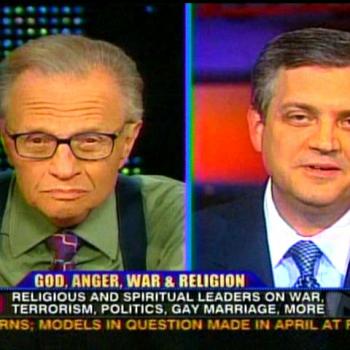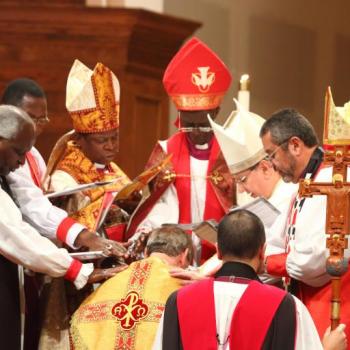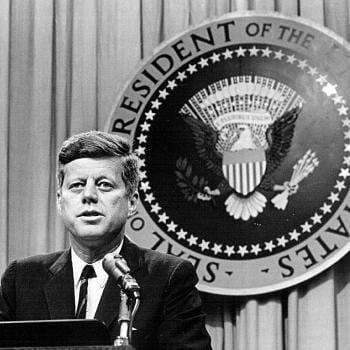If you walk into the main book browsing area in Harvard Coop (as in oops) in Harvard Square (Cambridge), you will see on the banister at the second level a display of Harvard University’s various schools’ crests. What caught my eye on a visit last week, after walking around the campus of my alma mater, Harvard Divinity School, was that the Div School actually started (1816) a year earlier than the Law School. Neither was as old as the Med School (1782). There you have the historic professions — doctor, pastor, attorney — with schools to match. The Med School’s age might suggest that at Harvard medicine was more important well before the pastoral ministry or practicing law gained stature. What is more likely is that the training of physicians shifted earlier than the ministry or law from the apprenticeship model to one of set curricula taught by professors with a degree as a reward — but not a license to practice law, medicine, or ministry.
Whatever importance these professional schools may have as gatekeepers for professional advancement, they themselves do not license physicians, pastors, or attorneys. These schools may provide training that will help graduates to pass exams that lead to licenses or offices. But the task of administering exams and approving candidates for medicine, ministry, and law fall to agencies other than a professional school. In the case of medicine and law, the institutions that keep the gates of the professions are part of the apparatus of state or local government or the creation and enforcement of law. In Massachusetts, for instance, the Board of Registration in Medicine is part of Massachusetts’ government and is responsible for licensing, regulating, and disciplining physicians working in the state. The process for becoming an attorney is less subject to direct government control. To become a lawyer in Massachusetts, the safest route is to go to law school in the state and then take the Massachusetts Bar Association’s exam. With a license from MBA, someone can open his or her own practice, or apply for a legal job that requires a law license. Since the practice of law overlaps so extensively with state legislatures and public prosecutors, thinking of law licenses as independent of the state is arguably mistaken.
In the case of Christian ministry, the way to ordination is almost completely subject to the procedures of each Christian communion itself. Someone could attend Princeton Seminary, an institution overseen by the Presbyterian Church in the U.S.A., receive an M.Div. and then seek ordination in a Southern Baptist or Unitarian congregation. Chances are, Princeton’s courses will not be relevant for ordination in those other communions, which is why going to a Southern Baptist or Unitarian seminary makes more sense. But the field of pastoral ministry is something that is basically independent from state oversight or control (except in the case of chaplains in the military or legislature).
I bring this up to wonder about who is “running things” in the world of mainline Protestantism. Over the weekend came news of the pastor at Riverside Church in New York City, the congregation that Harry Emerson Fosdick put on the map, coming to a parting of the ways with the church’s leaders thanks to her alleged sexual harassment of fellow pastors (she supposedly took them to a sex store and bought them sex toys). Then today comes word that the United Church of Christ (the Congregationalists with roots in New England Puritanism) at its annual national meeting endorsed the Green New Deal by a wide margin.
Both these stories raise questions about who’s regulating the churches.
Whatever you make of pastors going to adult “book” stores or the Green New Deal, chances are these are not topics covered in classes at any divinity school or seminary. And while a physician or lawyer who plied colleagues with sex toys might also lose his or her job or standing within the medical or legal establishment, it is hard to imagine the American Podiatric Medical Association feeling the need at their annual meeting to take a stand on climate change.
My hunch is that thanks to regulation of the medical and legal professions, either by state authorities or by institutions that have indirect ties to the courts and legislature, groups of doctors and lawyers stay in their lanes of professional responsibility when acting professionally either individually or collectively.
Not so with churches.
Is this a function of poor education received at seminaries and divinity schools, or the lack of prestige that such institutions enjoy in the hierarchy of American higher education? Or could it be that pastors and churches feel so far removed from real life and real power, things that apparently matter as opposed to those things hard to see or believe, like heaven and hell, these religious professionals feel free to gain standing by dabbling in affairs not directly religious and in some cases even sinful.
Whatever the answer, you can’t blame institutions like Harvard University. They try to take religion seriously by making a divinity school part of its educational operation. The ones who seem to be dropping the ball are the ones charged with overseeing their professions — the churches.












